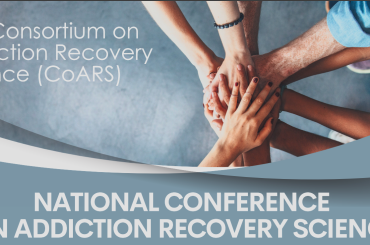Addiction is a complex disease that causes harm, not just to the person struggling with it but also to their loved ones. One of the most significant casualties of addiction can be trust. A person in active addiction may engage in behaviors not aligned with their values or are harmful to themselves and others. These behaviors can cause loved ones to lose faith. Even when the addicted person claims to be sober, it can be difficult to trust them.
To better understand how to rebuild trust after addiction, we spoke with Laura Crossett, a certified drug and alcohol counselor who’s been sober since 2007. Laura shared with us five strategies she has used that can help regain the trust of loved ones.
Use of recovery tools
Recovery tools can be incredibly helpful when it comes to rebuilding trust. Laura recommends using monitoring tools like Soberlink, joining communities like In the Rooms, and utilizing various recovery apps to help you stay accountable. Showing your loved ones that you are committed to your sobriety can really help. Laura, now Business Development Manager at Soberlink, personally understands the benefits of monitoring individuals in recovery. Soberlink is a portable and discreet, remote breathalyzer that sends real-time testing data via email or text. It utilizes high-tech features such as facial recognition and detects tamper attempts (such as using an air pump), meaning there is no question when proving your sobriety. With Soberlink, the frustration of having loved ones not believe you when you say you are sober is no longer an issue. You can provide real, tangible proof of sobriety.
Stick to a routine
Creating and sticking to a routine can be powerful in rebuilding trust. Laura recommends establishing a consistent sleep routine by going to bed and waking at the same time daily. Showing up on time to work and family events, and attending regular meetings all model a desire to do better and lessen the stress for family and work colleagues. Sticking to a routine can help establish credibility, reliability and commitment to sobriety.
Automate payments
Building trust with financial institutions can be challenging, but it’s essential to regain credibility. Laura recommends automating your payments to help rebuild your credit score, increase your line of credit, and improve your ability to get loans, rental applications, and mortgages. Someone struggling with addiction may have made poor financial decisions in the past, such as taking on debt to support their addiction or failing to make payments on time. With automated payments and continuing to build daily living skills such as budgeting and time management, a solid foundation for a financial future can be established. Decreased worry about money goes a long way to reduce the risk of relapse.
Stay connected
Lack of trust in a person struggling with addiction is common. The flip side of that is the addicted person may feel isolated and misunderstood because of the lack of trust. This can lead to further isolation and feelings of despair. Laura recommends staying connected with your loved ones and treatment professionals through tools like Soberlink. Soberlink provides ongoing data to your family members, clinicians, and treatment professionals, which can help establish trust and accountability. By staying connected and accountable, the person in recovery can build a strong support system and reduce the risk of relapse.
Be patient
Rebuilding trust takes time. While it may be tempting to get frustrated or defensive when your loved ones are slow to trust you, it’s essential to approach the situation with patience, empathy, and understanding. Laura offers the reminder to recognize that your past behaviors may have caused significant harm, and it will take time to rebuild trust that was lost. Keep showing up, being accountable, and putting in the work to stay sober, even when it feels challenging. Over time, with consistent effort and commitment, you can rebuild trust and establish a stronger foundation for your recovery.
In conclusion, regaining trust after addiction can be challenging but not impossible. By using recovery tools like Soberlink, sticking to a routine, automating payments, staying connected, and being patient, you can rebuild trust and establish a solid foundation for your recovery. As Laura Crossett reminds us, “acceptance is the key,” and accepting that rebuilding trust takes time and effort can be a critical first step on the journey to healing.








3 Comments
Potentially unpopular opinion. Articles like this often forget that it isn’t just the person with substance use disorder who engages in toxic or harmful behavior. Substance issues are often a trauma response to abuse and chaos. People who don’t happen to abuse substances aren’t necessarily free from toxic or damaging behaviors. Unfortunately, those are often ignored in favor of scapegoating the addict or weaponizing their efforts at healing against them.
While making amends and earning trust are good things people on a sobriety journey should also be careful that they don’t compromise their own sobriety or mental health by jumping through hoops to prove themselves to other dysfunctional people who are getting something out of keeping them feeling ashamed or inadequate.
Also from an ethical standpoint it should have been made much clearer that this article is an ad for a sobriety tool.
It’s irrelevant what other people believe. My sobriety first , your trust is your issue not mine
Amen brother, they can think what they want but when I’n sobriety and your faithful to it and people still don’t believe/trust ya back. Then they only wanna see the negative past of what you used to be in active addiction. You don’t gotta give no proof, I was taught you don’t got to defend the Truth!